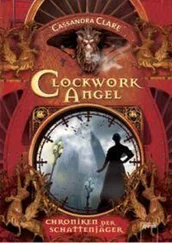In my later life as a refugee, first on the world of Barana and after that, everywhere and nowhere, there is nothing much worth recalling. Foster homes, poverty, my incarceration in some kind of soulless educational institution—the banality of the daily struggle to survive. But there are moments in my life that are seared into my mind forever: instants that were pivotal, life-changing, each a conspiracy of temporal nexuses, a concatenation of events that made me what I am. That is not an excuse—I could have chosen a different way to be. But I did not know, then, that I had a choice.
* * *
This is the first of those moments: the last time I was a woman, some ninety years ago in my personal time-frame. I was calling myself Ila, then, and doing some planet-hopping, working the cruisers and blowing the credits at each stop. I found myself on Planet Vilaasa, a rich and decadent world under the sway of the Samarin conglomerate. I was in one of those deep-city bars where it’s always night, where sunshine is like a childhood memory, where the air is thick with smoke, incipient violence and bumblebees. I don’t remember who I was with, but the place was crowded with humans, native and off-world, as well as mutants and nakalchis. There was a bee buzzing in my ear, promising me seven kinds of bliss designed especially for my personality and physical type if only I’d agree to let the Samarin Corporate Entity take over half my brain. I swatted it; it fell into my plate and buzzed pathetically, antennae waving, before it became non-functional. Somehow I found this funny; I still remember throwing back my head and laughing.
My fingers, slight and brown, curved around my glass. The drink half drunk, a glutinous purple drop sliding down the outer surface. Reflected on the glass a confusion of lights and moving shapes, and the gleam, sudden and terrifying, of steel.
There was a scream, and the sound of glass breaking that seemed to go on for ever. This was no barroom brawl. The raiders were Harvesters. I remember getting up to run. I remember the terrified crowd pressing around me, and then I was falling, kicked and stepped upon in the stampede. Somehow I pushed myself to safety under a table next to a stranger, a pale woman with long, black hair and eyes like green fire. She looked at me with her mouth open, saying one word:
“Nothen…”
A Harvester got her. It put its metal hands around her throat and put its scissor-like mouth to her chest. As she bled and writhed, it rasped one long word, interspersed with a sequence of numbers.
Her body turned rigid and still, her face twisted with horror. Her green eyes froze in a way that was simultaneously aware and locked in the moment of torment. It was then that I realized that she was a nakalchi, a bio-synthetic being spawned from a mother-machine.
The name of the mother-machine is what pushes a nakalchi into the catatonic state that is Shunyath . When they enter Shunyath they re-live the moment when that name was spoken. Since the nakalchis are practically immortal, capable of dying only through accident or violence, Shunyath is their way of going to the next stage. Usually a nakalchi who has wearied of existence will go to one of their priests, who will put the candidate in a meditative state of absolute calm and surrender. Then the priest will utter the name of the mother-machine (such names being known only to the priests and guarded with their lives) so that the nakalchi may then contemplate eternity in peace.
For first-generation nakalchis, Shunyath is not reversible.
That is when I realized that this woman was one of the ancients, one of the nakalchis who had helped humankind find its way to the stars.
So for her, frozen in the state of Shunyath, it would seem as though she was being strangled by the Harvester all the rest of her days. No wonder she had asked me for Nothen, for death. She had known the Harvesters had come for her; she had known what they would do. I remember thinking, in one of those apparently timeless moments that terror brings: somebody should kill the poor woman. She was obviously the target of the raid.
But to my horrified surprise the Harvester turned from her to me, even as I was sliding away from under the table to a safer place. While the Harvester had me pinned to the floor, its long, flexible electrodes crawled all over my skin as it violated my humanness, my woman-ness, with its multiple limbs. Through the tears and blood I saw myriad reflections of myself in those dark, compound eyes, from which looked—not only the primitive consciousness of the Harvester, but the eyes of whoever manipulated it—the person or entity who, not content with finding their target, fed like a starving animal on the terror of a bystander. In those eyes I was a stranger, a non-person, a piece of meat that jerked and gibbered in pain. Then, for a moment, I thought I saw the burning woman from my memories of childhood, standing behind the Harvester. This is death, I said to myself, relieved. But the Harvester left me a few hair-breadths short of death and moved on to its next victim.
I don’t know how many they killed or maimed that night. The nakalchi woman they took away. I remember thinking, through the long months of pain and nightmares that followed, that I wish I had died.
* * *
But I lived. I took no joy in it. All that gave my mind some respite from its constant seething was a game I invented: I would find the identity of the person responsible for the Harvester raid and I would kill them. Find, and kill. I went through endless permutations of people and ways of killing in my head. Eventually it was no longer a game.
I moved to another planet, changed my sex to one of the Betweens. Over the years I changed my body even further, ruthlessly replacing soft, yielding flesh with coralloid implants that grew me my own armor-plating. Other people shuddered when I walked by. I became an interplanetary investigator of small crime and fraud, solving trivial little cases for the rich and compromised, while biding my time.
It was already suspected that the man responsible for the Harvester attacks that terrorized whole planets during the Samarin era was no other than the governing mind of the Samarin Corporate Entity, Hirasor. The proof took many years and great effort on the part of several people, including myself, but it came at last. Nothing could be done, however, because Hirasor was more powerful than any man alive. His icons were everywhere: dark, shoulder-length hair framing a lean, aristocratic face with hungry eyes; the embroidered silk collar, the rose in his buttonhole. It came out then that he had a private museum of first-generation nakalchis locked in Shunyath in various states of suffering. A connoisseur of pain, was Hirasor.
But to me he was also Hirasor, destroyer of worlds. He had killed me once already by destroying my world-shell, Ramasthal. It was one of the epic world-shells, a chain of island satellites natural and artificial, that ringed the star Agni. Here we learned, lived and enacted our lives based on that ancient Indic epic, the Ramayan, one of those timeless stories that condense in their poetry the essence of what it means to be human. Then Samarin had infiltrated, attacking and destroying at first, then doing what they called “rebuilding”: substituting for the complexity and beauty of the Ramayan, an inanely simplified, sugary, cultural matrix that drew on all the darkness and pettiness in human nature. Ramasthal broke up, dissolved by the monocultural machine that was Samarin. I suffered less than my fellow-citizens—being a child, I could not contribute a brain-share to Samarin. I grew up a refugee, moving restlessly from one inhabited world to the next, trying and failing to find my center. Most of the ordinary citizens of these worlds had never heard of the Ramayan epic, or anything else that had been meaningful to me in that lost past life. In my unimaginable solitude my only defense was to act like them, to be what they considered normal. When the Harvesters invaded the bar, I had been living the fashionably disconnected life that Samarin-dominated cultures think is the only way to be.
Читать дальше












